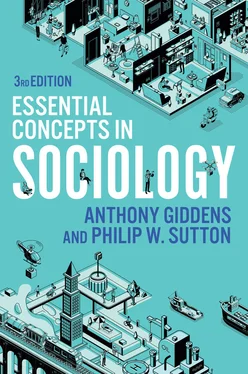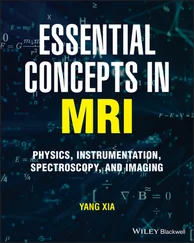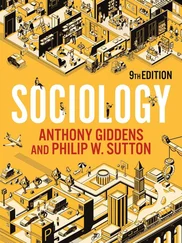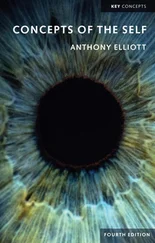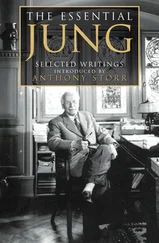Connell (2018) outlines some key issues and possible solutions. She points out that sociologists working in the Global North tend to read and cite only other Northern scholars and theorists. The discipline is also institutionally based in elite European and North American universities, where high-ranking journals and research funding agencies are focused. Social theory is similarly placed, and many of these theories speak in terms of their application to humanity as such, demonstrating the powerful position of Western sociologists to shape the discipline. A rational choice, then, is for Global South scholars simply to adopt the methods and theories of the more powerful groups and to aim their work at mainstream journals, a strategy Connell calls ‘extraversion’. Yet this extraverted sociology may simply reproduce, not challenge, the existing global division of academic labour.
Addressing McLennan’s criticism above, Connell suggests that, in practice, decolonizing sociology would involve ‘correcting the distortions and exclusions produced by empire and global inequality and reshaping the discipline in a democratic direction on a world scale ’ (Connell 2018: 402). A decolonizing project would entail reshaping the curriculum and rewriting textbooks and courses in a more balanced way to include the experience of postcolonial countries. It also demands challenging the established institutional power base, changing the composition of the global sociology workforce and redistributing research funding in more equal ways.
References and Further Reading
Bhabha, H. K. (1994) The Location of Culture (London: Routledge).
Bhambra, G. K. (2014a) Connected Sociologies (London: Bloomsbury).
— (2014b) ‘Postcolonial and Decolonial Dialogues’, Postcolonial Studies , 17(2): 115–21.
Connell, R. (2018) ‘Decolonizing Sociology’, Contemporary Sociology: A Journal of Reviews , 47(4): 399–407.
Go, J. (2016) ‘Globalizing Sociology, Turning South: Perspectival Realism and the Southern Standpoint’, Sociologica , 2: 1–42.
McLennan, G. (2010) ‘Eurocentrism, Sociology, Secularity’, in E. G. Rodríguez, M. Boatcă and S. Costa (eds), Decolonizing European Sociology: Transdisciplinary Approaches (Farnham: Ashgate): 119–34.
Olukoshi, A., and Nyamnjoh, F. (2011) ‘The Postcolonial Turn: An Introduction’, in R. Devisch and F. Nyamnjoh (eds) The Postcolonial Turn: Re-Imagining Anthropology and Africa (Bamenda, Cameroon: Langaa Research and Publishing Common Initiative Group): 1–28.
Said, E. (1978) Orientalism: Western Conceptions of the Orient (London: Routledge & Kegan Paul).
Spivak, G. K. (1988) ‘Can the Subaltern Speak?’, in C. Nelson and L. Grossberg (eds) Marxism and the Interpretation of Culture (Chicago: University of Illinois Press): 271–316.
Postmodernity
Working Definition
An historical period, following modernity, which is less clearly defined, pluralistic and socially diverse than the modernity that preceded it. Postmodernity is said to have developed from the early 1970s onwards.
The ‘postmodern turn’ in social theory began in the mid-1980s, though the concept of the postmodern lies a decade earlier in cultureand the arts. In architecture, for instance, a new style emerged that took elements from a range of existing genres to produce strange-looking buildings – such as the Lloyd’s building in London – that somehow ‘worked’. This method of playfully mixing and matching genres and styles was described as postmodern. In film, the strange worlds created by the director David Lynch (see, for instance, Blue Velvet , 1986) mixed historical periods, combining extreme violence and sexual ‘ deviance’ with old-fashioned tales of romance and morality. In many other areas of artistic work and culture the postmodern trend continued, and in the late 1980s the social sciences finally caught up.
The single key work which launched postmodern ideas in sociology was Jean-François Lyotard’s (1984) The Postmodern Condition , in which the author outlined his thesis that some of the main planks of modern societywere losing their central place. In particular, Lyotard saw science, which had been the dominant form of knowledge during the modern period, losing legitimacy as people began to seek out local forms of knowledge, such as older folk knowledge and religious and common-sense beliefs. The decentring of scientific thinking, argued Lyotard, was a symptom of the emerging postmodern society. Other theorists whose work has had a major impact on theories of postmodernity include Zygmunt Bauman (1992, 1997) and Jean Baudrillard (1983, 1995).
Meaning and Interpretation
Postmodern thinking is diverse, and theorists prioritize different elements associated with the suggested shift to a postmodern society. One target of most postmodernists is the attempt by social theorists, from Comte and Marx to Giddens, to discern the direction and shape of history. For these theorists, the process of historical change is structured and ‘goes somewhere’ – it makes progress. In Marxist theory, for example, this progressive movement is from capitalismto the more egalitarian societies of socialism and communism. However, postmodern thinkers reject such grand theorizing.
The trust people invested previously in science, politicians and human progress in history has been eroded as fears of nuclear war or environmentalcatastrophe, along with continuing conflictsand episodes of genocide, puncture the civilized veneer of modern societies. Lyotard described this process as the collapse of ‘metanarratives’, those big stories of continuous progress that justified deference towards scientists, experts and professionals. Instead, the character of postmodernity is irrevocably diverse and fragmented, exemplified by the worldwide web, which teems with images, videos and other material from almost every culture around the world. The experience of web surfing can be one of randomness as we encounter a wide range of values and ideas very different from our own. This potentially disorientating experience is typical of a postmodern culture that is saturated with mass-media content.
Jean Baudrillard argues that the electronic media have destroyed our relationship to the past, creating a chaotic, empty world in which society is influenced, above all, by signs and images. For Baudrillard, the rising prominence of the mass mediaerodes the border between reality and its representation, leaving just one ‘hyperreality’ within which we all live. In a hyperreal world, our perception of events and our understanding of the social world become highly dependent on their being viewed through mass media such as television. Baudrillard’s (1995) provocative newspaper articles ‘The Gulf War Will Not Take Place’, ‘The Gulf War is Not Really Taking Place’ and ‘The Gulf War Did Not Take Place’, published before, during and after the war in 1991, aimed to show how apparently primary ‘real-world’ events, such as armies fighting in Kuwait, and the apparently secondary media reports of them were actually part of the same hyperreality.
A good way of thinking about postmodern ideas as received in sociology is to distinguish between the main tenets of postmodern social change and sociological theory’s ability to account for and understand this. The rapid growth and spread of mass media, new information technologies, more fluid movements of people across national boundaries, the demise of social classidentities, and the emergence of multicultural societies – all of these changes, say postmodernists, lead us to conclude that we no longer live in a modern world ordered by national states. Modernity is dead and we are entering a postmodern period. The question then arises as to whether ‘modern’ sociology can adequately analyse a ‘post-modern’ world: Is there a sociology of postmodernity ? Or are the consequences of postmodern change so radical that they render modern theories and concepts redundant? Do we need a postmodern sociology for a postmodern world?
Читать дальше
